16 Mar 2016 | Campaigns, European Union, Statements, Turkey, Turkey Letters
The President of the European Council
Donald Tusk
General Secretariat of the Council of the European Union
Rue de la Loi/Wetstraat 175
B-1048 Bruxelles/Brussel
Belgique/België
CC:
Federica Mogherini, High Representative of the European Union for Foreign Affairs and Security Policy
Stavros Lambrinidis, EU Special Representative for Human Rights
Elmar Brok, Chair of the European Parliament Committee on Foreign Affairs
Johannes Hahn, Commissioner for European Neighbourhood Policy and Enlargement Negotiations
Martin Schulz, President of the European Parliament
Dear President Tusk,
We, the undersigned press freedom and media organisations, are writing ahead of the upcoming meeting between EU leaders and Ahmet Davutoğlu, Prime Minister of Turkey, to express our concern over the collapse of media freedom in Turkey.
In the past six months, we have recorded 50 incidents in clear breach of international standards with regards to media freedom and pluralism in the country.[1] These violations include the recent government takeovers of the Feza media group and the Koza İpek Group; the prosecution and jailing of daily Cumhuriyet editor-in-chief Can Dündar and Ankara bureau chief Erdem Gül on politically motivated charges of terrorism, espionage and revealing classified information; the police raids of Bugün TV; the assault of journalist Ahmet Hakan; and the blocking of Dicle News Agency’s website.
Many of these violations took place against the backdrop of the migration and refugee crisis or are related to reporting on sensitive issues such as the banned Kurdistan Workers’ Party (PKK) or Turkey’s security operations in the south. Hence we believe the Council has the mandate to address these violations during the specific working session on EU-Turkey cooperation.
This mandate stems from the Council’s commitment to the rights to freedom of expression including freedom of the press, which was reaffirmed when adopting the EU Human Rights Guidelines on “freedom of expression online and offline” on 12 May 2014.[2] By doing so, the Council pledged that “through its external policy instruments, the EU intends to help address and prevent violations of these rights in a timely, consistent and coherent manner.”
The guidelines also state that “all appropriate EU external financial instruments should be used to further protect and promote freedom of opinion and expression online as well as offline.”
While we welcome the fact that you discussed the situation of the media in Turkey with Prime Minister Davutoğlu last week, we believe the EU must not reach a deal without a specific conditionality clause that requires Turkey to improve the environment for freedom of expression and freedom of the media.
When meeting Prime Minister Davutoğlu on 18 March 2016, you have the unique opportunity to not only discuss the press freedom situation in Turkey, but to bring forth concrete measures that Turkey ought to take in order to start reversing its unrelenting crackdown on the media. Without taking these measures Ankara cannot and must not be considered a trustful strategic partner for the European Union. Specifically, we ask that you make any EU-Turkey agreement conditional on the release of the more than dozen journalists currently jailed for their work;[3] the immediate return of the media outlets belonging to the Feza and Koza İpek groups to their rightful owners and editorial boards; and the abandonment of Turkey’s official practice of using vague anti-terror laws to equate press coverage with criminal activity.
At a time when the very essence of the European Union is questioned, it is critical to show unity and coherence over one of its core foundations: human rights, and in particular freedom of opinion and expression, which are fundamental elements of democracy.
Yours sincerely,
Jodie Ginsberg, Chief Executive, Index on Censorship
David Diaz-Jogeix, Director of Programmes, Article 19
William Horsley, Vice President and Media Freedom Representative, Association of European Journalists
Nina Ognianova, Europe and Central Asia Program Coordinator, Committee to Protect Journalists
Jo Glanville, Director, English Pen
Mogens Blicher Bjerregård, President, European Federation of Journalists
Barbara Trionfi, Executive Director, International Press Institute
Carles Torner, Executive Director, PEN International
Christophe Deloire, Executive Director, Reporters Without Borders
Deborah Bonetti, President, Foreign Press Association in London
[1] www.mappingmediafreedom.org (verified reports from 1 October 2015 to 14 March 2016)
[2] EU Human Rights Guidelines on Freedom of Expression Online and Offline, adopted by the Council on 12 May 2014 (Foreign Affairs Council meeting)
[3] At least 28 journalists jailed in Turkey (last update: 26 February 2016). Source: European Federation of Journalists and affiliates, http://europeanjournalists.org/journalists-in-jail-europe/
1 Mar 2016 | Events
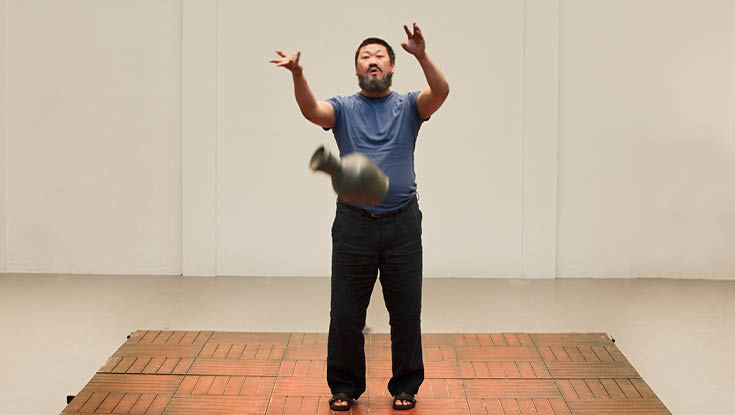
Freedom of expression is a basic human right. But do we really have it? Where are you free to express what? A group of leading figures from the arts, all of whom have taken centre stage in this debate at some point in their careers, discuss this hot topic, not only relevant to the stage, but also in our everyday lives.
Join Evening Standard editor Sarah Sands, playwright Howard Brenton and Index on Censorship CEO Jodie Ginsberg as part of The Festival at Hampstead Theatre. The Festival at Hampstead Theatre, now in its second year, will bring together an array of artists from a cross section of disciplines to share their stories and processes of work via panel discussions and some practical hands-on workshops in writing and performing. More details about The Festival can be found here.
When: Friday, 18 March 11am
Where: HAMPSTEAD THEATRE, Eton Avenue, Swiss Cottage, London NW3 3EU (Map)
Tickets: From £8
Participants
 Sarah Sands trained on The Sevenoaks Courier as a news reporter, before moving to the Evening Standard – initially as Editor of the Londoner’s Diary – and took further posts as Features Editor and Associate Editor. She joined The Daily Telegraph in 1996 as Deputy Editor to assume responsibility later for the Saturday edition. She was appointed the first female Editor of The Sunday Telegraph in 2005. In 2006 she worked as Consultant Editor on The Daily Mail and in 2008, she became Editor-in-Chief of the UK edition of Reader’s Digest. She was appointed Deputy Editor of the London Evening Standard in 2009 and became its Editor in 2012.
Sarah Sands trained on The Sevenoaks Courier as a news reporter, before moving to the Evening Standard – initially as Editor of the Londoner’s Diary – and took further posts as Features Editor and Associate Editor. She joined The Daily Telegraph in 1996 as Deputy Editor to assume responsibility later for the Saturday edition. She was appointed the first female Editor of The Sunday Telegraph in 2005. In 2006 she worked as Consultant Editor on The Daily Mail and in 2008, she became Editor-in-Chief of the UK edition of Reader’s Digest. She was appointed Deputy Editor of the London Evening Standard in 2009 and became its Editor in 2012.
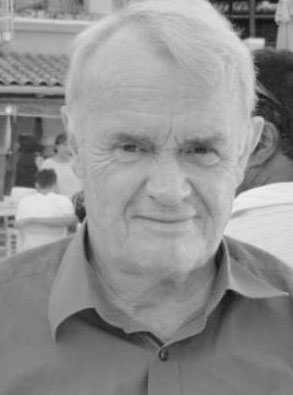 Howard Brenton has been writing plays for over 50 years. The most recent are Paul (2005) and Never So Good (2008) at the National Theatre, The Ragged Trousered Philosophers (2010, after Robert Tressell) at the Everyman Theatre Liverpool and Chichester Festival Theatre, 55 Days (2012), the Arrest of Ai Weiwei (2013) and Drawing the Line (2013) at Hampstead Theatre, In Extremis (2008), Anne Boleyn (2010) and Doctor Scroggy’s War (2014) at Shakespeare’s Globe.
Howard Brenton has been writing plays for over 50 years. The most recent are Paul (2005) and Never So Good (2008) at the National Theatre, The Ragged Trousered Philosophers (2010, after Robert Tressell) at the Everyman Theatre Liverpool and Chichester Festival Theatre, 55 Days (2012), the Arrest of Ai Weiwei (2013) and Drawing the Line (2013) at Hampstead Theatre, In Extremis (2008), Anne Boleyn (2010) and Doctor Scroggy’s War (2014) at Shakespeare’s Globe.
 Jodie Ginsberg is CEO of Index on Censorship, a London-based organisation that champions free expression worldwide. Founded by poet Stephen Spender, Index publishes works by censored writers and artists and campaigns against censorship. A former foreign correspondent, Jodie worked for more than a decade for Reuters news agency and from 2007-2011 was Reuters’ London Bureau Chief, where she led coverage of the financial crisis, UK riots, and phone hacking scandal. Jodie set up the Reuters ‘press gang’ initiative – a journalism programme for young people in communities around Canary Wharf, and in 2013 was shortlisted in the media category of the UK’s First Women Awards.
Jodie Ginsberg is CEO of Index on Censorship, a London-based organisation that champions free expression worldwide. Founded by poet Stephen Spender, Index publishes works by censored writers and artists and campaigns against censorship. A former foreign correspondent, Jodie worked for more than a decade for Reuters news agency and from 2007-2011 was Reuters’ London Bureau Chief, where she led coverage of the financial crisis, UK riots, and phone hacking scandal. Jodie set up the Reuters ‘press gang’ initiative – a journalism programme for young people in communities around Canary Wharf, and in 2013 was shortlisted in the media category of the UK’s First Women Awards.
7 Jan 2016 | France, Mapping Media Freedom, News, Statements, United Kingdom
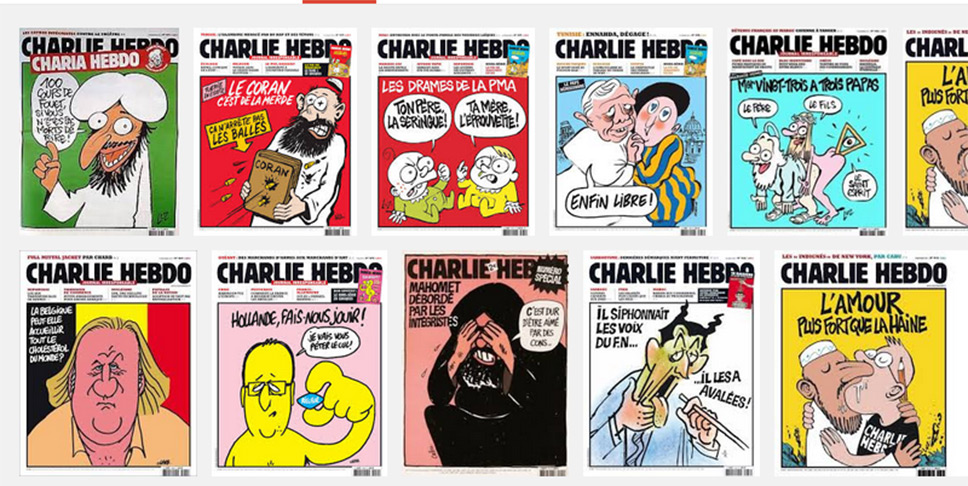
When I started working at Index on Censorship, some friends (including some journalists) asked why an organisation defending free expression was needed in the 21st century. “We’ve won the battle,” was a phrase I heard often. “We have free speech.”
There was another group who recognised that there are many places in the world where speech is curbed (North Korea was mentioned a lot), but most refused to accept that any threat existed in modern, liberal democracies.
After the killing of 12 people at the offices of French satirical magazine Charlie Hebdo, that argument died away. The threats that Index sees every day – in Bangladesh, in Iran, in Mexico, the threats to poets, playwrights, singers, journalists and artists – had come to Paris. And so, by extension, to all of us.
Those to whom I had struggled to explain the creeping forms of censorship that are increasingly restraining our freedom to express ourselves – a freedom which for me forms the bedrock of all other liberties and which is essential for a tolerant, progressive society – found their voice. Suddenly, everyone was “Charlie”, declaring their support for a value whose worth they had, in the preceding months, seemingly barely understood, and certainly saw no reason to defend.
The heartfelt response to the brutal murders at Charlie Hebdo was strong and felt like it came from a united voice. If one good thing could come out of such killings, I thought, it would be that people would start to take more seriously what it means to believe that everyone should have the right to speak freely. Perhaps more attention would fall on those whose speech is being curbed on a daily basis elsewhere in the world: the murders of atheist bloggers in Bangladesh, the detention of journalists in Azerbaijan, the crackdown on media in Turkey. Perhaps this new-found interest in free expression – and its value – would also help to reignite debate in the UK, France and other democracies about the growing curbs on free speech: the banning of speakers on university campuses, the laws being drafted that are meant to stop terrorism but which can catch anyone with whom the government disagrees, the individuals jailed for making jokes.
And, in a way, this did happen. At least, free expression was “in vogue” for much of 2015. University debating societies wanted to discuss its limits, plays were written about censorship and the arts, funds raised to keep Charlie Hebdo going in defiance against those who would use the “assassin’s veto” to stop them. It was also a tense year. Events discussing hate speech or cartooning for which six months previously we might have struggled to get an audience were now being held to full houses. But they were also marked by the presence of police, security guards and patrol cars. I attended one seminar at which a participant was accompanied at all times by two bodyguards. Newspapers and magazines across London conducted security reviews.
But after the dust settled, after the initial rush of apparent solidarity, it became clear that very few people were actually for free speech in the way we understand it at Index. The “buts” crept quickly in – no one would condone violence to deal with troublesome speech, but many were ready to defend a raft of curbs on speech deemed to be offensive, or found they could only defend certain kinds of speech. The PEN American Center, which defends the freedom to write and read, discovered this in May when it awarded Charlie Hebdo a courage award and a number of novelists withdrew from the gala ceremony. Many said they felt uncomfortable giving an award to a publication that drew crude caricatures and mocked religion.
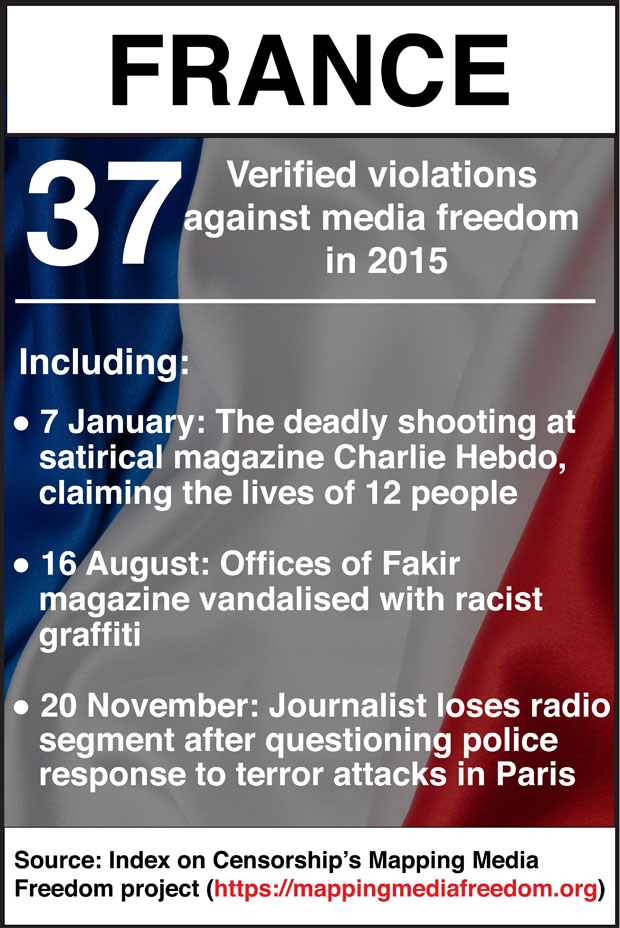
Index’s project Mapping Media Freedom recorded 745 violations against media freedom across Europe in 2015.
The problem with the reaction of the PEN novelists is that it sends the same message as that used by the violent fundamentalists: that only some kinds of speech are worth defending. But if free speech is to mean anything at all, then we must extend the same privileges to speech we dislike as to that of which we approve. We cannot qualify this freedom with caveats about the quality of the art, or the acceptability of the views. Because once you start down that route, all speech is fair game for censorship – including your own.
As Neil Gaiman, the writer who stepped in to host one of the tables at the ceremony after others pulled out, once said: “…if you don’t stand up for the stuff you don’t like, when they come for the stuff you do like, you’ve already lost.”
Index believes that speech and expression should be curbed only when it incites violence. Defending this position is not easy. It means you find yourself having to defend the speech rights of religious bigots, racists, misogynists and a whole panoply of people with unpalatable views. But if we don’t do that, why should the rights of those who speak out against such people be defended?
In 2016, if we are to defend free expression we need to do a few things. Firstly, we need to stop banning stuff. Sometimes when I look around at the barrage of calls for various people to be silenced (Donald Trump, Germaine Greer, Maryam Namazie) I feel like I’m in that scene from the film Lock, Stock and Two Smoking Barrels where a bunch of gangsters keep firing at each other by accident and one finally shouts: “Could everyone stop getting shot?” Instead of demanding that people be prevented from speaking on campus, debate them, argue back, expose the holes in their rhetoric and the flaws in their logic.
Secondly, we need to give people the tools for that fight. If you believe as I do that the free flow of ideas and opinions – as opposed to banning things – is ultimately what builds a more tolerant society, then everyone needs to be able to express themselves. One of the arguments used often in the wake of Charlie Hebdo to potentially excuse, or at least explain, what the gunmen did is that the Muslim community in France lacks a voice in mainstream media. Into this vacuum, poisonous and misrepresentative ideas that perpetuate stereotypes and exacerbate hatreds can flourish. The person with the microphone, the pen or the printing press has power over those without.
It is important not to dismiss these arguments but it is vital that the response is not to censor the speaker, the writer or the publisher. Ideas are not challenged by hiding them away and minds not changed by silence. Efforts that encourage diversity in media coverage, representation and decision-making are a good place to start.
Finally, as the reaction to the killings in Paris in November showed, solidarity makes a difference: we need to stand up to the bullies together. When Index called for republication of Charlie Hebdo’s cartoons shortly after the attacks, we wanted to show that publishers and free expression groups were united not by a political philosophy, but by an unwillingness to be cowed by bullies. Fear isolates the brave – and it makes the courageous targets for attack. We saw this clearly in the days after Charlie Hebdo when British newspapers and broadcasters shied away from publishing any of the cartoons featuring the Prophet Mohammed. We need to act together in speaking out against those who would use violence to silence us.
As we see this week, threats against freedom of expression in Europe come in all shapes and sizes. The Polish government’s plans to appoint the heads of public broadcasters has drawn complaints to the Council of Europe from journalism bodies, including Index, who argue that the changes would be “wholly unacceptable in a genuine democracy”.
In the UK, plans are afoot to curb speech in the name of protecting us from terror but which are likely to have far-reaching repercussions for all. Index, along with colleagues at English PEN, the National Secular Society and the Christian Institute will be working to ensure that doesn’t happen. This year, as every year, defending free speech will begin at home.
16 Dec 2015 | Awards, Events, mobile, Press Releases
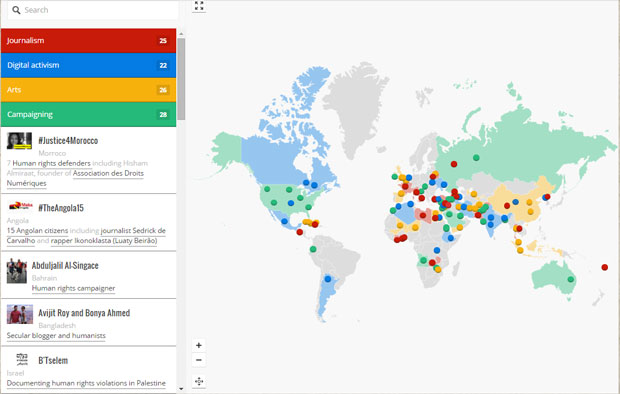
A graffiti artist who paints murals in war-torn Yemen, a jailed Bahraini academic and the Ethiopia’s Zone 9 bloggers are among those honoured in this year’s #Index100 list of global free expression heroes.
Selected from public nominations from around the world, the #Index100 highlights champions against censorship and those who fight for free expression against the odds in the fields of arts, journalism, activism and technology and whose work had a marked impact in 2015.
Those on the long list include Chinese human rights lawyer Pu Zhiqiang, Angolan journalist Sedrick de Carvalho, website Raqqa is Being Slaughtered Silently and refugee arts venue Good Chance Calais. The #Index100 includes nominees from 53 countries ranging from Azerbaijan to China to El Salvador and Zambia, and who were selected from around 500 public nominations.
“The individuals and organisations listed in the #Index100 demonstrate courage, creativity and determination in tackling threats to censorship in every corner of globe. They are a testament to the universal value of free expression. Without their efforts in the face of huge obstacles, often under violent harassment, the world would be a darker place,” Index on Censorship CEO Jodie Ginsberg said.
Those in the #Index100 form the long list for the Index on Censorship Freedom of Expression Awards to be presented in April. Now in their 16th year, the awards recognise artists, journalists and campaigners who have had a marked impact in tackling censorship, or in defending free expression, in the past year. Previous winners include Nobel Peace Prize winner Malala Yousafzai, Argentina-born conductor Daniel Barenboim and Syrian cartoonist Ali Ferzat.
A shortlist will be announced in January 2016 and winners then selected by an international panel of judges. This year’s judges include Nobel Prize winning author Wole Soyinka, classical pianist James Rhodes and award-winning journalist María Teresa Ronderos. Other judges include Bahraini human rights activist Nabeel Rajab, tech “queen of startups” Bindi Karia and human rights lawyer Kirsty Brimelow QC.
The winners will be announced on 13 April at a gala ceremony at London’s Unicorn Theatre.
The awards are distinctive in attempting to identify individuals whose work might be little acknowledged outside their own communities. Judges place particular emphasis on the impact that the awards and the Index fellowship can have on winners in enhancing their security, magnifying the impact of their work or increasing their sustainability. Winners become Index on Censorship Freedom of Expression Awards Fellows and are given support for the year after their fellowship on one aspect of their work.
“The award ceremony was aired by all community radios in northern Kenya and reached many people. I am happy because it will give women courage to stand up for their rights,” said 2015’s winner of the Index campaigning award, Amran Abdundi, a women’s rights activist working on the treacherous border between Somalia and Kenya.
Each member of the long list is shown on an interactive map on the Index website where people can find out more about their work. This is the first time Index has published the long list for the awards.
For more information on the #Index100, please contact [email protected] or call 0207 260 2665.


 Sarah Sands trained on The Sevenoaks Courier as a news reporter, before moving to the Evening Standard – initially as Editor of the Londoner’s Diary – and took further posts as Features Editor and Associate Editor. She joined The Daily Telegraph in 1996 as Deputy Editor to assume responsibility later for the Saturday edition. She was appointed the first female Editor of The Sunday Telegraph in 2005. In 2006 she worked as Consultant Editor on The Daily Mail and in 2008, she became Editor-in-Chief of the UK edition of Reader’s Digest. She was appointed Deputy Editor of the London Evening Standard in 2009 and became its Editor in 2012.
Sarah Sands trained on The Sevenoaks Courier as a news reporter, before moving to the Evening Standard – initially as Editor of the Londoner’s Diary – and took further posts as Features Editor and Associate Editor. She joined The Daily Telegraph in 1996 as Deputy Editor to assume responsibility later for the Saturday edition. She was appointed the first female Editor of The Sunday Telegraph in 2005. In 2006 she worked as Consultant Editor on The Daily Mail and in 2008, she became Editor-in-Chief of the UK edition of Reader’s Digest. She was appointed Deputy Editor of the London Evening Standard in 2009 and became its Editor in 2012. Howard Brenton has been writing plays for over 50 years. The most recent are Paul (2005) and Never So Good (2008) at the National Theatre, The Ragged Trousered Philosophers (2010, after Robert Tressell) at the Everyman Theatre Liverpool and Chichester Festival Theatre, 55 Days (2012), the Arrest of Ai Weiwei (2013) and Drawing the Line (2013) at Hampstead Theatre, In Extremis (2008), Anne Boleyn (2010) and Doctor Scroggy’s War (2014) at Shakespeare’s Globe.
Howard Brenton has been writing plays for over 50 years. The most recent are Paul (2005) and Never So Good (2008) at the National Theatre, The Ragged Trousered Philosophers (2010, after Robert Tressell) at the Everyman Theatre Liverpool and Chichester Festival Theatre, 55 Days (2012), the Arrest of Ai Weiwei (2013) and Drawing the Line (2013) at Hampstead Theatre, In Extremis (2008), Anne Boleyn (2010) and Doctor Scroggy’s War (2014) at Shakespeare’s Globe. Jodie Ginsberg is CEO of Index on Censorship, a London-based organisation that champions free expression worldwide. Founded by poet Stephen Spender, Index publishes works by censored writers and artists and campaigns against censorship. A former foreign correspondent, Jodie worked for more than a decade for Reuters news agency and from 2007-2011 was Reuters’ London Bureau Chief, where she led coverage of the financial crisis, UK riots, and phone hacking scandal. Jodie set up the Reuters ‘press gang’ initiative – a journalism programme for young people in communities around Canary Wharf, and in 2013 was shortlisted in the media category of the UK’s First Women Awards.
Jodie Ginsberg is CEO of Index on Censorship, a London-based organisation that champions free expression worldwide. Founded by poet Stephen Spender, Index publishes works by censored writers and artists and campaigns against censorship. A former foreign correspondent, Jodie worked for more than a decade for Reuters news agency and from 2007-2011 was Reuters’ London Bureau Chief, where she led coverage of the financial crisis, UK riots, and phone hacking scandal. Jodie set up the Reuters ‘press gang’ initiative – a journalism programme for young people in communities around Canary Wharf, and in 2013 was shortlisted in the media category of the UK’s First Women Awards.

